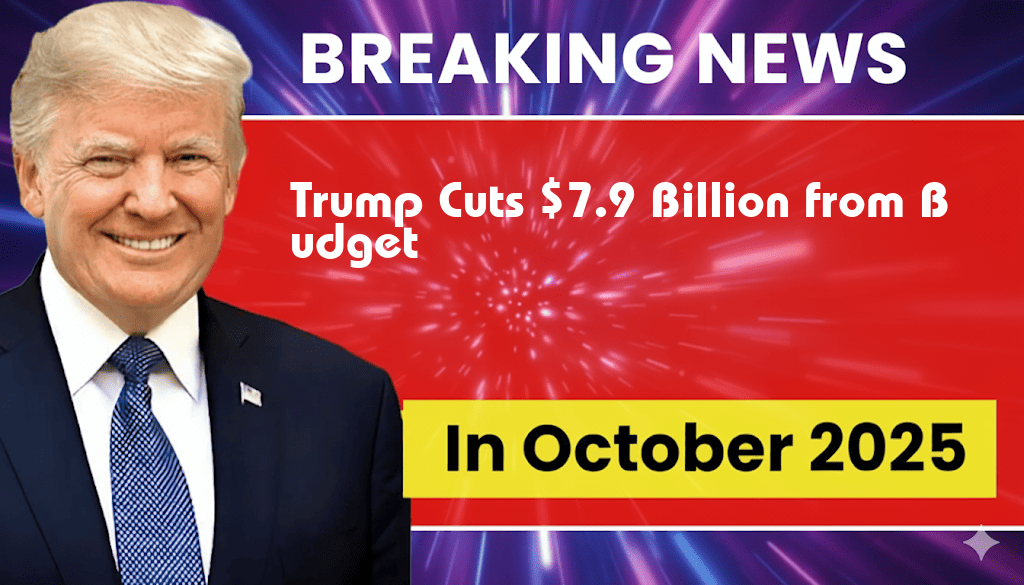In a significant move that has sparked debate among lawmakers and economists, former President Donald Trump has announced the passage of the Rescissions Act, which aims to eliminate approximately $7.9 billion from the federal budget. This legislation is part of Trump’s broader strategy to curtail government spending and redirect funds towards initiatives that align with his administration’s priorities. The act targets various programs across multiple sectors, including education, healthcare, and infrastructure, raising concerns about the potential impacts on essential services and communities that rely on federal support.
Details of the Rescissions Act
The Rescissions Act, formally introduced in the House of Representatives, outlines specific budget cuts aimed at reducing the national deficit. The proposed reductions are primarily focused on unspent funds from previous fiscal years, which Trump argues should not be carried over into future budgets. Proponents of the act claim that eliminating wasteful spending is crucial for economic recovery.
Key Provisions
- Education Funding: Cuts to various educational programs, particularly those that have not demonstrated measurable success.
- Healthcare Programs: Reductions in funding for certain healthcare initiatives that have seen declining utilization rates.
- Infrastructure Projects: Delays or cancellations of projects that are deemed non-essential or over-budget.
Reactions from Lawmakers
The response to the Rescissions Act has been mixed, with some lawmakers applauding Trump’s efforts to rein in government spending, while others express concern over the long-term ramifications of such drastic cuts.
Supporters’ Perspective
Supporters argue that the Rescissions Act is a necessary step towards fiscal responsibility. Representative Jim Jordan (R-OH) stated, “The American people want us to prioritize their hard-earned tax dollars and eliminate wasteful spending. This act does just that.” Advocates believe that redirecting funds will lead to more efficient government operations and bolster economic growth.
Opponents’ Concerns
Conversely, critics of the act warn that the cuts may disproportionately affect vulnerable populations. Senator Patty Murray (D-WA) voiced her concerns, saying, “These cuts will hurt families who depend on federal support for education and healthcare. We need to invest in our communities, not slash funding that helps them thrive.”
Economic Implications
Economists are divided on the potential impacts of the Rescissions Act. Some suggest that reducing government spending may lead to a short-term boost in economic performance by lowering the deficit. Others caution that such cuts could slow down recovery efforts, particularly in sectors that are still reeling from the effects of the COVID-19 pandemic.
| Sector | Proposed Cuts ($ billions) |
|---|---|
| Education | 2.5 |
| Healthcare | 3.0 |
| Infrastructure | 2.4 |
Public Reaction and Future Prospects
The public’s reaction to the Rescissions Act has been mixed, with many expressing concern over the potential loss of essential services. Advocacy groups have mobilized to protest the cuts, emphasizing the need for a balanced approach to budget management that does not sacrifice critical support for communities.
Looking ahead, the future of the Rescissions Act remains uncertain as it moves through the legislative process. Some analysts predict that bipartisan negotiations may lead to amendments that soften the impact of the proposed cuts, while others believe that the current political climate may hinder any substantial changes.
As discussions continue, stakeholders from both sides of the aisle will likely engage in a robust dialogue about the best path forward for the nation’s budgetary priorities. For more detailed information on the Rescissions Act and its implications, you can refer to sources like Wikipedia and Forbes.
Frequently Asked Questions
What is the purpose of Trump’s Rescissions Act?
The purpose of Trump’s Rescissions Act is to cut unnecessary funding from the federal budget, aiming to reduce spending by eliminating $7.9 billion in previously allocated funds.
How does the Rescissions Act impact government programs?
The Rescissions Act can significantly impact various government programs by reducing their funding, which may lead to cuts in services or a reevaluation of current projects that rely on federal support.
What types of funding are affected by the cuts?
The cuts primarily affect discretionary spending categories, including infrastructure projects, social services, and environmental initiatives, which are often subject to annual budget negotiations.
What are the potential consequences of these budget cuts?
Potential consequences of the $7.9 billion budget cuts include reduced funding for essential services, job losses in affected sectors, and a slowdown in economic growth due to decreased government spending.
How does the Rescissions Act fit into Trump’s overall economic strategy?
The Rescissions Act aligns with Trump’s overall economic strategy of promoting fiscal conservatism and prioritizing budget cuts to reduce the national deficit and promote private sector growth.

Leave a Reply